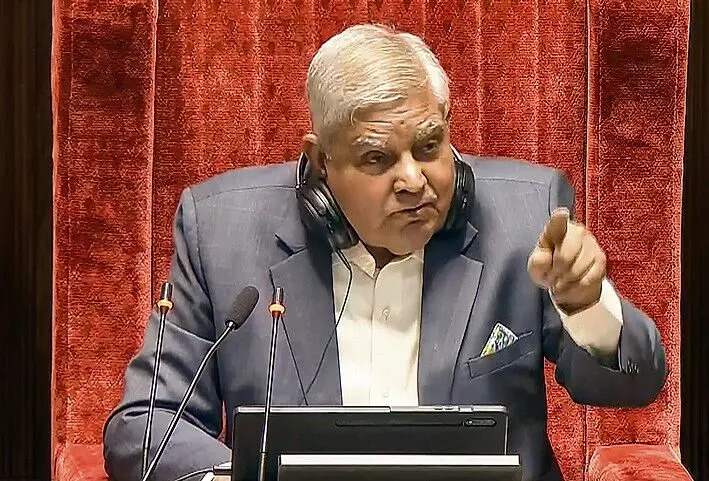NewsGate Press Network
the just concluded winter session of Parliament has been a stormy one with 146 members of Lok Sabha and Rajya Sabha being suspended for creating disturbances during the proceedings.
With continued disturbances particularly in the Upper House, the Rajya Sabha Chairman Jagdeep Dhankhar who also happens to be the Vice President of the India was miffed for more than one reasons.
While giving a brief of the work done during the session RS Chairman said that he was pained to learn that 22 hours were lost due to ‘avoidable disruptions’ adding that weaponizing them as a political strategy doesn’t resonate with our Constitutional obligation.
It was the 262nd session of the Rajya Sabha. The productivity stood at 79 per cent.
“We were able to transact business for 65 hours during the 14 sittings and addressed over 2300 Questions from treasury and the opposition benches. During the period over 4300 papers were laid on the Table. I am pained to state that nearly 22 hours were lost due to avoidable disruptions adversely impacting our overall productivity that finally stood at 79 percent. Weaponizing disruptions and disturbance as a political strategy doesn’t resonate with our constitutional obligation of keeping the interest of people at large above any other political considerations,” he said.
“A total of 17 Bills including important path breaking bills related to Jammu & Kashmir, Appointment of Election Commissioners, the Post Office Bill, The Telecommunications Bill and the three Bills namely Bharatiya Sakshya Bill, Bharatiya Nyaya Sanhita, Bharatiya Nagarik Suraksha Sanhita were passed during this session. These three bills unshackled colonial legacy of criminal jurisprudence that was hurtful to the citizens of this country and favouring alien rulers,” he said.
“After the historic step of abolition of Article 370 and provision of one-third reservation for women in Parliament and State Legislatures, the House afforded the benefit of the same to the people of Jammu and Kashmir through the bills passed during the session,” the RS Chairman added.
Taking note of the passage of the Bill to repeal the Indian Post Office Act, 1898 and to consolidate and amend the law relating to the post offices in India, Dhankhar said, “The Post Office Bill revamped the old colonial structure to set up the stage for fulfilment of the aspirations of the people of the country.”


Comments are closed for this post.